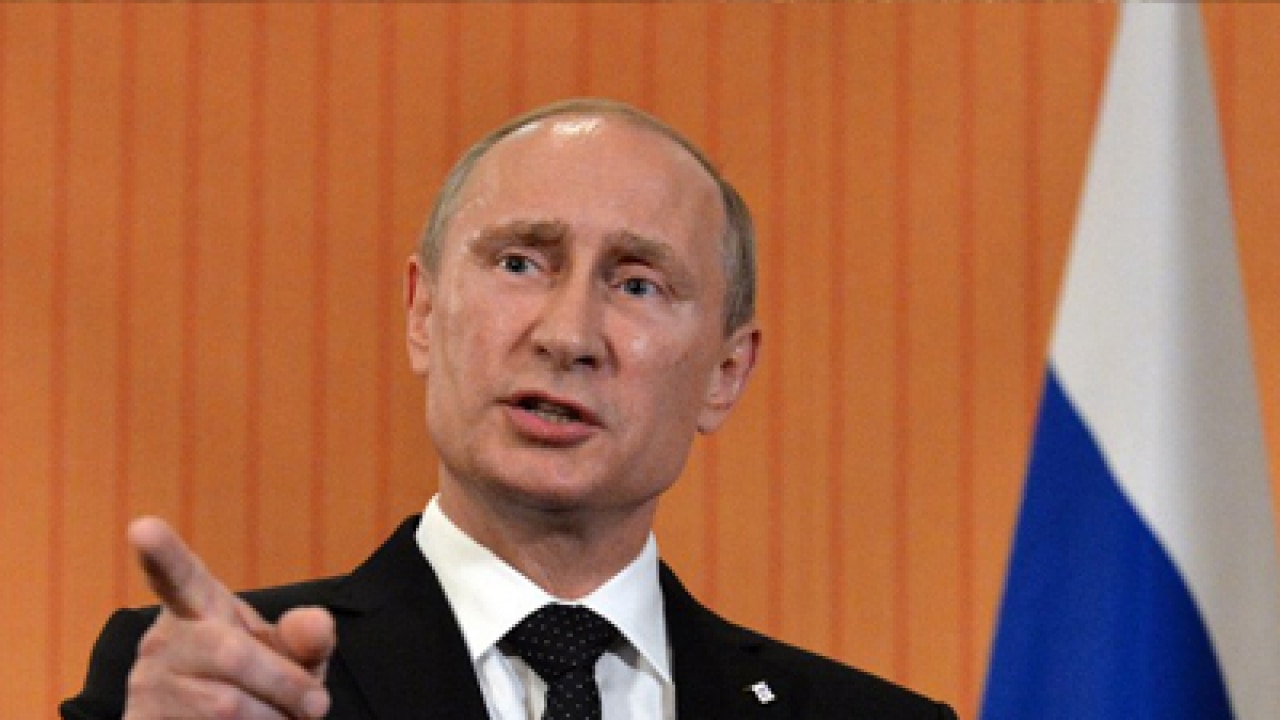
For most of the last century, authoritarian Soviet communist regimes had curbed freedom and thwarted democracy. The USSR's success in space and weapons had made it a superpower by the end of WW II. But the country was run with an artificially propped currency and weak economy. In the mid-1980s, President Gorbachev tried introducing Perestroika (Restructuring) and Glasnost (Freedom) to promote democracy and personal dignity. However, the Soviets were not prepared for this massive change and by early 1990s, the Union split into 12 Commonwealth of Independent States.The Russian economy, the major country that inherited the legacy, collapsed and lost international strategic power and standing. USA became the sole world power, while Russians, not only suffered economic deprivation, but were also demoralised.
Lt Col Vladimir Putin was a tough KGB officer for 16 years before he joined politics in 1991. In 1996, he joined Boris Yeltsin’s administration and finally became acting President in 1999 when Yeltsin suddenly resigned. Ever since, he has been the de-facto supreme leader of Russia. After two terms as President, to overcome constitutional limitations, he switched to being the Prime Minister, and retained power. The world then coined a new term called ‘tandemocracy’.
The authoritarian Putin quashed all domestic opposition and internationally worked to restore Russian pride. Prudent policies and the commodities and oil boom helped their economy recover and reduce poverty. By his third term starting 2012, Putin began restoring Russia’s strategic position. The Crimean peninsula in the Black Sea had traditionally housed the Russian Black Sea naval fleet. Though part of Ukraine, the understanding was that Russia will have full access to the port of Sevastopol. But since 1994, Ukraine had been partnering with NATO and was inclined towards the European Union. Russia found this strategically untenable. Seeing the West committed heavily in Iraq and Syria, and using the pretext of pro-Russian agitation in eastern Ukraine in 2014, Putin decided to annex the strategically located Crimea. This was the first major foreign policy success of the now outward-looking Putin. The West imposed sanctions, but these hurt Europe more than Russia, as they need Russian oil. The somewhat ambivalent NATO response emboldened Putin further.
Meanwhile, Syria and Iraq were traditional friends and recipients of Russian arms. Russia had a diminished role in Middle East since the Soviet collapse. But Putin finally sensed an opportunity in the complex regional dynamics of the war against Islamic State. With the collapsing oil market, he also needed a weapons and nuclear exports market. Iran and Syria were at loggerheads with USA. Putin offered them both support. Russia sold the most potent S-300 anti-aircraft missile systems to Iran. It also completed the construction of Iran and the Middle East's first civilian nuclear power facility, and continuously opposed the economic sanctions against Iran. Syria received around $1.5 billion worth of arms. Then, taking the world by surprise, Putin moved Russian fighters, surveillance aircrafts and helicopters in support of Assad in Syria, to take on Islamic State. He was quick to respond with very heavy bombing, when Islamic State claimed to have shot down a Russian charter Airbus 321 flight over Sinai, killing all 224 on board. Russia, also for the first time ever, fired missiles from a submarine against ISIS targets. When Turkey shot down a Russian Su-25 fighter which had flown over its eastern region, Putin was quick to order sanctions and promised to punish them strongly.
With the focus shifting to the Asia-Pacific region, Russia began warming up to China and relations were sealed through the Shanghai Cooperation Organisation. Russia built a trans-Siberian oil pipeline for markets in China, Japan and Korea. President Putin is also a valued friend of India, and the original architect of the India-Russia strategic partnership. Putin's Russia maintains positive relations with all BRIC countries. Russia successfully hosted the 2014 Winter Olympics and Paralympics and will also set to host the 2018 FIFA World Cup.
Putin has an outdoor, sporty tough-guy public image, and routinely takes part in extreme sports, martial arts, fighter jet flying, ice-hockey, alpine skiing, deep sea diving etc. Known to be honest and upright, he reportedly does not make it to the 100 richest members of his own political party. Public opinion surveys put Putin's approval rating at 81%, the second highest of any world leader. For the last three years he has been the world’s most powerful person, as listed by Forbes. Russia’s middle class loves him and are willing to soldier through economic difficulties with a proud Putin leading them. With USA currently busy in its Presidential elections, Putin will look to consolidate Russia’s strategic position and put it back on the global high table.
The author is a retired Air Marshal of the Indian Air Force.